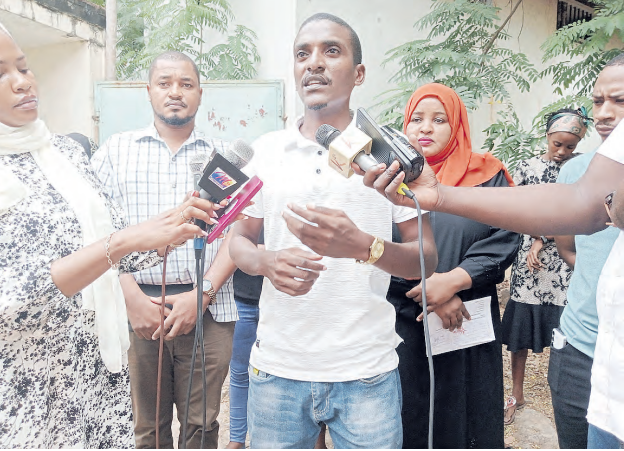
Kelvin Ireri is now a happy man. His business is thriving.
The director of Dereke Enterprises, which sells internet
connections in Mombasa, started with a lot of difficulties because of a lack of
enough capital.
“When we started this business, we had a lot of challenges in
acquiring the necessary equipment and licenses,” Ireri said.
He went around financial institutions seeking loans but they
disappointed him.
“When we discovered there is the Youth Fund, we started by
asking for a Sh2 million loan.”
After training and consultation, they secured the loan and
shifted from wireless to fibre technology.
“Now, we are at 80 per cent fibre, 20 per cent wireless,”
Ireri said.
As the company grew, they asked for a top up of Sh4 million,
which was granted.
“We are now expanding more and soon we will be moving into
other markets outside Mombasa,” he said.
Ireri said the Youth
Fund loan attracts little interest compared to financial institutions.
“Before you get that
loan from financial institutions, it is a hectic process. You must use your
assets to secure a loan, assets which you may not have.”
Youth Fund loans have low interest, longer repayment periods
and do not require much security.
Barnabas Mulandi, the chairman of the Umakini Youth Group in
Likoni, said they came up with a proposal to set up an ICT hub.
“But it was not easy starting because of the huge capital
required. We printers, computers, hard disks cameras, setting the environment,
among others.”
When they applied for
a loan at the Youth Fund, they were first taken through training.
After about three weeks, they received Sh200,000.
The group used the money to buy equipment that set them on
the path to success, including opening another branch that teaches youth life
skills and spreading the gospel of the Youth Fund.
The ICT hub teaches youth computer literacy and other
technological skills needed in today’s world at a small fee of Sh30 per hour.
They also teach those who dropped out of school basic
computer skills.
“Although there are
many challenges in our journey, we are still pushing ourselves. Repaying the
loan is not hard because of the low interest rates and favourable repayment
periods,” Mulandi said.
He urged youth in Mombasa to register themselves in groups
to access Youth Fund loans to start business.
Riziki Mathias
started with a Sh50,000 loan that she used to build a stall she rented out.
After a market research she came up with the idea of selling
water, which had huge profit margins.
She acquired a Sh100,000 loan to buy a 10,000-litre water
tank and filled it with purified water, which she sold to residents.
These are just some
of the many success stories that Mombasa youth report.



